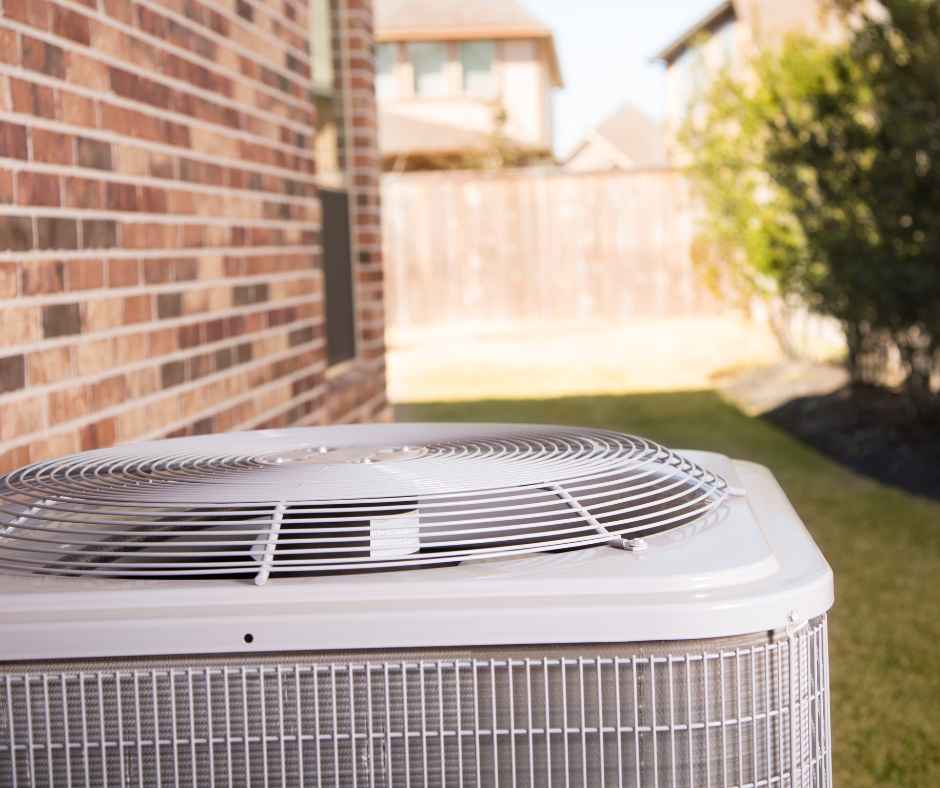Why Is My Air Conditioner Leaking Water?

If you’ve noticed water pooling around your air conditioning unit, you might be wondering, “Why is my air conditioner leaking water?” While a small amount of condensation is normal, excessive leaking could indicate a more serious issue that needs attention. Ignoring a leaking AC can lead to water damage, mold growth, and costly air conditioner repair. In this guide, we’ll explore the common causes of an air conditioner leaking water and what you can do to fix the problem.
How Does an Air Conditioner Produce Water?
Your air conditioner removes heat and humidity from the air in your home. As warm air passes over the evaporator coil, moisture condenses and drips into the drain pan. This water is then directed outside through a drain line. However, if something goes wrong in this process, your AC can start leaking water indoors.
Common Causes of an AC Leaking Water
Clogged Condensate Drain Line
One of the most common reasons for an air conditioner leaking water is a clogged condensate drain line. Over time, dirt, mold, and debris can block the drain, preventing proper water drainage. As a result, water backs up and starts leaking from the unit. To fix this, turn off the air conditioner and locate the drain line. Using a wet/dry vacuum, try to remove any blockages. If the clog persists, professional AC repair may be necessary.
Dirty Air Filter
A dirty air filter restricts airflow over the evaporator coil, causing it to freeze. When the ice melts, excess water can overwhelm the drain pan, leading to leakage. Checking your air filter and replacing it if it’s dirty can help resolve this issue. Regularly changing filters every 1-3 months can prevent air conditioner problems before they start.
Low Refrigerant Levels
Low refrigerant levels can also cause the evaporator coil to freeze. As the ice melts, it may result in an air conditioner leaking water around the unit. Additionally, low refrigerant levels can make your AC less efficient and lead to higher energy bills. If your AC isn’t cooling effectively and you hear hissing sounds, you may have a refrigerant leak. Calling for air conditioner repair is the best way to diagnose and recharge refrigerant levels safely.
Damaged or Rusted Drain Pan
The drain pan collects condensation from the evaporator coil before directing it to the drain line. If the pan is old, rusted, or cracked, water may start leaking from the unit instead of being properly drained. Checking the drain pan for visible cracks and replacing it if necessary can help resolve the issue. If the problem persists, a technician can assess and repair your AC unit.
Improper Installation
If your air conditioning unit was not installed correctly, it may not be level. A tilted AC unit can cause water to collect and spill over instead of draining properly. Ensuring that your AC unit is level can help prevent future leaks. If you suspect installation issues, consulting an HVAC professional may be necessary.
Faulty Condensate Pump
In some HVAC systems, a condensate pump helps remove water from the AC unit. If the pump malfunctions, water can accumulate and start leaking. Inspecting the pump to see if it’s running properly is a good first step. If the pump is broken, a professional repair or replacement may be required.
When to Call for Professional Air Conditioner Repair
While some causes of an AC leaking water can be fixed with simple maintenance, others require professional air conditioner repair. You should call an HVAC expert if:
-
Your AC continues to leak despite clearing the drain line.
-
You notice ice forming on the evaporator coil.
-
Your air conditioning system isn’t cooling properly.
-
You hear unusual noises like hissing or gurgling.
-
Water damage is spreading around your unit.
How to Prevent Your Air Conditioner from Leaking Water
To avoid future problems, follow these maintenance tips:
-
Change Air Filters Regularly: A clean filter improves airflow and prevents the evaporator coil from freezing.
-
Inspect and Clean the Drain Line: Flush the drain line with a mixture of vinegar and water to remove debris.
-
Schedule Regular AC Maintenance: Professional inspections can catch potential issues before they lead to major problems.
-
Ensure Proper Installation: If you’re installing a new AC unit, hire a licensed technician to ensure it’s level and functioning properly.
Need AC Repair? Contact Banks Quarles Today!
If your air conditioner is leaking water, don’t wait for the problem to worsen. Banks Quarles Plumbing, Heating, Cooling & Electrical offers expert air conditioner repair to quickly diagnose and fix any AC issues. Our team provides professional air conditioning services to keep your home comfortable and efficient.
Contact Banks Quarles today for fast and reliable AC repair in Tuscaloosa!
